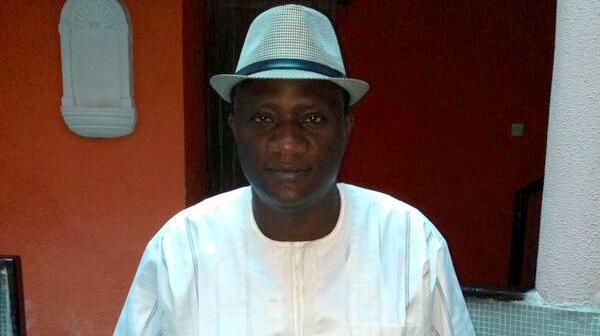
The Director General of the Lagos State Safety Commission, Hakeem Dickson, has finally reacted to his reported conviction for bank and credit card fraud in the United States of America in 1992.
In an exclusive interview with PREMIUM TIMES, Mr Dickson said his name became linked to the conviction after an unnamed friend, who had been arrested and sentenced to two years in the U.S. for the offence, absconded from justice.
He insisted he would not mention names because he does not want to be “a snitch,” but maintained the criminal case before a U.S. District Court had nothing to do with him.
“Before sentence, I was the one that paid the bail. But when he got sentenced, he left,” said Mr Dickson, a former council chairman of Surulere local government.
“Now who paid the bail? Me. And I need to produce him.”
Mr Dickson was sworn in as the head of the Lagos State Safety Commission in June 2017, eight months after the then governor, Akinwunmi Ambode, announced his appointment.
The Conviction
PREMIUM TIMES reported how Mr Dickson was convicted of fraud in the U.S.
According to the U.S. District Court, Mr Dickson pleaded guilty to count one of a four-count indictment which charged that from August 29, 1990, to September 10, 1990, he “knowingly and willfully executed and attempted to execute” a scheme to defraud a federally insured institution in violation of U.S. laws.
On June 25, 1992, he was sentenced to a 24-month jail term, to be followed by a term of supervised release of three years.
He was also ordered to repay $14,400.
The judge fixed August 3, 1992, for his voluntary surrender, despite opposition from the U.S. government, the plaintiff in the suit.
On the fixed date, Mr Dickson was nowhere to be found in the U.S., according to court records, forcing the judge to revoke his bail and issue the warrant for his arrest.
What actually happened
In the interview with PREMIUM TIMES at his Alausa, Lagos, office, Mr Dickson said his family’s name is popular in New Jersey and his problem with U.S. authorities began after his friend came from Nigeria and was arrested.
According to him, after his friend’s arrest, they convinced him to mention his name so they could reduce his jail term.
“They [needed] a name that is popular, they mentioned my name. And that’s why they came.”
Mr Dickson said he was in Nigeria when he was told that his friend – and his brother – had been arrested and he had to return to the U.S.
“I came, I bailed this person (the friend). Why? Because this person is already in America for so many years and he’s studying and he has final year. I didn’t bail my own brother because he just came in and I figured he can easily come back because he came on visiting.
“So we can tell them that he wants to go back home instead of charging him. And he did that. We paid for the ticket, everything, he came back.”
According to Mr Dickson, after his brother left the U.S., his friend was sentenced to two years in prison.
“Before [the sentence], I was the one that paid the bail. But when he got sentenced, he left. Now, who paid the bail? Me. And I need to produce him. They came to my house after I got back and said you’re the one that put the bail. That’s why they put all his eggs on my head. And that’s the truth. I’ve been to U.S. more than four times. I’ve been everywhere.”
In 2012, Mr Dickson’s lawyers reportedly filed a motion seeking to adjust his sentence of 24 months incarceration in the U.S. by claiming that he had already served 17 months on the same sentence in a Lagos prison.
In his motion, Mr Dickson claimed that a series of events after his sentencing, preceded by violent clashes between Muslims and Christians in Lagos, forced him to disobey the August 3 surrender date.
“During these clashes, two of Defendant’s sisters were killed and the family home was burned to the ground,” the judge quoted Mr Dickson as claiming, in his judgment dated May 12, 2012.
“Following his sentencing Defendant returned to Lagos to bury his sisters, assess the damage to his father’s house and to take his mother for treatment.
“When Defendant arrived in Lagos, he was arrested at the airport and was told that since he was convicted in the United States he would also serve time in Nigeria. He was retained in custody until December 10, 1993, a total of 17 months.”
But a PREMIUM TIMES’ investigations showed that the Nigerian Prisons Services does not have any record of Mr Dickson serving a jail time between 1992 and 1993.
Mr Dickson told PREMIUM TIMES he neither had lawyers filing motions on his behalf in the U.S. nor served jail time in any Nigerian prison.
“I don’t have a lawyer. It’s all politics,” he said.
END

Be the first to comment